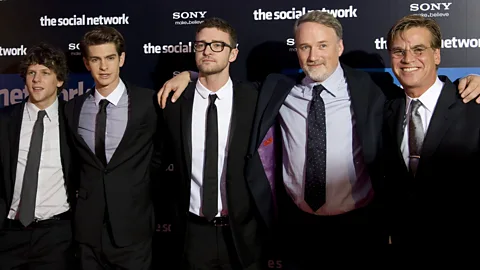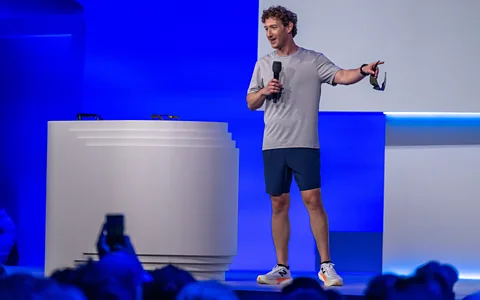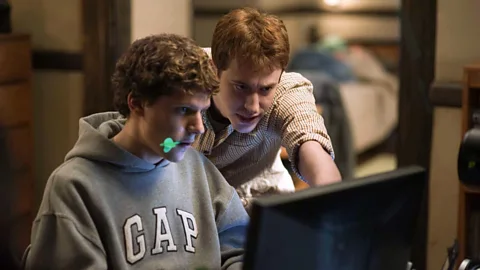

Directed by David Fincher and written by Aaron Sorkin, the Oscar-winning drama about the birth of Facebook proved to be an eerily prophetic look at social media's problems.
The Social Network was released just 15 years ago, on 1 October 2010, but that sometimes feels like a different era. Directed by David Fincher, with an Oscar-winning screenplay by Aaron Sorkin, the hugely acclaimed film follows Mark Zuckerberg (Jesse Eisenberg), the co-creator of Facebook, as he rises from Harvard dorm room to corporate boardroom. And yet, when the credits roll, he is still a long way from the influential figure he is today, just as the social media in the film is a long way from what it would become. Facebook itself was still a novelty, having been founded in 2004. Twitter, established in 2006, was even younger; Snapchat wouldn't come along until 2011; and, coincidentally, Instagram was born in the very same month that The Social Network came out.
All the same, Fincher and Sorkin were remarkably prescient. The Social Network may have been the first film from a major studio to depict internet entrepreneurs, but it's only now that we can appreciate just how insightful and even prophetic it was about their distinct ambitions, insecurities and motivations – and about the online world they would fashion in their image.

In some ways, the film was just the latest in a long line of great American dramas to have a protagonist achieving their goal of power and riches, only to feel hollow and alone afterwards. Its biting look at American capitalism is in the tradition of Citizen Kane (1941), The Godfather (1972), There Will Be Blood (2007), and other stories about ambition, wealth and betrayal. "They're all about making money, and who gets hit along the way," says Paul McEwan, a professor of media, communication, and film studies at Muhlenberg College. "That's a quintessential American story. The Social Network sits right at those crossroads. It examines the inherent contradictions between unfettered capitalism and whether we owe the people that help get us there."
What makes The Social Network compellingly different from its predecessors is that its characters are so young. Both Zuckerberg and Parker – who co-founded the file-sharing service Napster – were only 19 years old when they made their technological breakthroughs – and the film sees their youth as being key to who they were, and how they would shape the internet. "The whole point of The Social Network is that this is the first time that people so young have had so much power," says Neil Archer, a senior lecturer in film at Keele University, and the author of The Social Network: Youth Film 2.0. "It's about looking at that amount of power and wealth consolidated around teens."
For Archer, the situation is at its most explosive towards the end of The Social Network, when Eduardo Saverin (Andrew Garfield) learns that Zuckerberg and Parker (Justin Timberlake) have forced him out of the company. Saverin confronts the pair by smashing Zuckerberg's computer in front of the whole office. "These are children," Archer tells the BBC. "They don't know how to dress, or how to act properly. They're not even old enough to drink."

Just compare the spindly and snarky Zuckerberg played by Eisenberg with the domineering alpha males played by Orson Welles in Citizen Kane, Al Pacino in The Godfather and Daniel Day-Lewis in There Will Be Blood. He is more like a nerd in a teen comedy than the usual Hollywood leader of men. He doesn't wear a pinstriped suit, and he doesn't look as if he would survive for more than a minute in an oilfield. Fast-forward to today, and while tech bros may be older than Zuckerberg is in the film, the culture of studenty casual clothes, playground insults and video-gaming geekiness has persisted. "Zuck is a cuck," said Elon Musk of Zuckerberg in 2023. It wasn't the most mature way to refer to a competitor.
In The Social Network, immaturity is a defining trait of Zuckerberg and his buddies, especially where sex is concerned. "The Winklevoss twins [both played by Armie Hammer] basically want to start Harvard Connection [a proto-Facebook social network] so guys can hook up with girls," says Archer. "The opening of the film shows the coachload of girls being bussed into the Phoenix Club. That's what Mark wants, too. The film is hinting at the facile nature of what this stuff is used for. The whole film is anchored around teenage concerns of social status and getting [girls]."
Fact and fiction
Fincher and Sorkin use Zuckerberg's supposed fascination with an ex-girlfriend called Erica Albright (played by Rooney Mara) as the framework for the story and the decline of his character. After being dumped by her, Fincher shows him immediately heading back to his dorm room and vengefully creates the misogynistic website Facemash, which compares the looks of female students on campus. Then, after he runs into her again halfway through the film, and she scolds him, Zuckerberg insecurely makes the decision to expand Facebook so that he can prove to her he's not an "asshole", which is what she called him in the opening scene. Come the end of the film, he's still concerned about getting her respect, even though it's seemingly been years since they last spoke.

It should be noted that Albright is a fictional character invented by the film-makers. Zuckerberg was in a relationship with his future wife Priscilla Chan while he was creating Facebook, and he has dismissed the motivations his onscreen self is given. "The whole framing of the movie is I'm with this girl, who doesn't exist in real life, who dumps me," he said in a speech at Stanford University in 2010. "And, basically, the framing is that the whole reason for making Facebook is because I wanted to get girls, or wanted to get into clubs. They [Fincher and Sorkin] just can't wrap their head around the idea that someone might build something because they like building things."
Zuckerberg may have a point, but it's hardly the first time that a film has twisted the truth for dramatic and thematic purposes. "As a historian and someone who believes very strongly in media literacy, I always approach and encourage others to approach a film based on real events as still a dramatisation," Jason Steinhauer, the author of History, Disrupted: How Social Media and the World Wide Web Have Changed the Past, tells the BBC. "Every Hollywood film takes liberties, removes elements from the story, heightens the drama, and accentuates certain characters, all in the name of storytelling. I would be hesitant for anyone to make an assumption that the Zuckerberg that was depicted in that film is somehow this very accurate picture of the man himself."
What is striking, though, is the way The Social Network draws a different type of "accurate picture" – a picture of certain negative aspects of social media which wouldn't be analysed in depth for years after the film came out. According to its critics, online interaction feeds on insecurity; it can encourage hostility; and it has, as the New York Times put it last year, "created a recipe for loneliness".
In 2020, CNBC reported on a Cigna survey that "found an increasing correlation between social media usage and feelings of loneliness". And in the words of a 2021 Oxford University philosophy study by Emily Qureshi-Hurst – just one of many recent articles on the subject – "social media heightens feelings of alienation and estrangement" in three ways:
"1) social media allows us to construct artificial versions of ourselves through the use of filters and photo editing software;
2) it provides the means to quantify social approval in groups the size of which the human brain has not evolved for;
3) it extends the size of our social networks but decreases the quality of interactions."
In short, it turns us all into callow students, desperate to be popular, however badly that desperation makes us feel.
The final scene of The Social Network sums up this state. After betraying his best friend Eduardo and getting his new best friend Sean ousted from Facebook, Zuckerberg sits alone in an office, waiting for Albright to accept his Facebook friend request. The shots of him sitting motionless in his chair, repeatedly tapping the button to see if Albright has responded, are the perfect encapsulation of what social media has done to so many of us. "Followers and likes are the new economy," says Archer. "It's an economy based on a false idea of connectivity, because you're not connected to those people."
Next October, audiences will see whether Sorkin believes that Zuckerberg has matured and grown in the decade and a half since the release of The Social Network. Sorkin is writing and directing a follow-up, The Social Reckoning, which will feature Jeremy Strong as Zuckerberg. "It's a totally different story to tell," says Steinhauer. "The story of a huge multinational company is different from that of a plucky start-up. There's also different responsibilities now for what should be in that film. We know that social media has caused people harm. We know that social media has an outsized influence on political outcomes. We know that social media has been a force for radicalisation and alienation in some communities. So a film has to deal with those questions or the ramifications of those questions in some way. It'll be interesting to see what they come up with."
--
If you liked this story, sign up for The Essential List newsletter – a handpicked selection of features, videos and can't-miss news, delivered to your inbox twice a week.
For more Culture stories from the BBC, follow us on Facebook and Instagram.